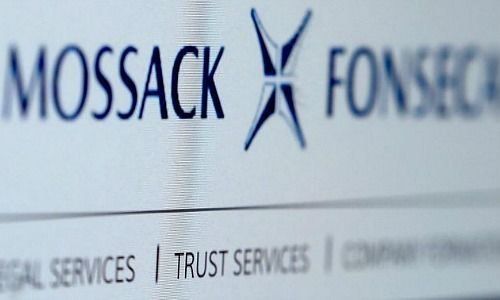Swiss Banking: 2017's Hot Spots
After years on the defensive, Swiss banking could be set for a breakout year. Landmark decisions on regulation, interest rates and at Swiss giant Credit Suisse are expected. Here are the seven most important ones.

1. Credit Suisse: High Expectations for Swiss IPO
All eyes are already on Credit Suisse Switzerland: the bank plans to spin off the legal entity to new investors in the second half of this year. Unit head and former investment banker Thomas Gottstein has already begun preparations; he and his team only have a few months to polish the unit to a high shine. If the IPO falters with potential investors, Credit Suisse won't be able to access urgently-needed capital.
If the IPO succeeds, it will mean a new era in Swiss banking and another universal bank in Switzerland – and the Swiss daughter can demonstrate how a successful and stable Credit Suisse could look like.

2. AEOI: From Tax Dispute to Cooperation
January 1 ushers in the «clean money» era for Swiss banking: Switzerland is one of 50 so-called early adapters of the OECD-brokered automatic exchange or information, or AEOI, with European Union countries and Australia. Client data can be shipped as soon as 2018, retroactive on this year.
The move is a bid for Switzerland to improve its tarnished image as an offshore haven; it is also an opportunity to begin leveling the playing field.
Swiss banks are still waiting for market access to the EU, and while client data and taxes are being shipped to the U.S., Switzerland has yet to receive the same back. Tax disputes with Germany and France are still bubbling, while emerging markets in Asia and Latin America are beginning to show interest in clawing back dirty money.

(Picture Shutterstock)
3. USA: Swiss State-Backed Banks Face Penalties
A justice program to settle Swiss banks' past tax misdeeds was settled at the end of last year, bringing an original group of roughly 16 banks under criminal investigation back into focus. Washington, after settling in following the inauguration of Donald Trump as President in January, is expected to devote itself to the handful of Swiss banks which yet to settle.
Among them are Pictet and HSBC Private Bank in Geneva, but also cantonal banks in Zurich and Basel. Since these two are state-guaranteed firms, the issue is potentially politically explosive.

4. Money-Laundering: Curse of New Markets
The Panama Papers as well as ongoing graft investigations into Brazilian oil firm Petrobras and Malaysian state fund 1MDB highlight the pitfalls of getting involved in emerging markets, where corruption is widespread.
The 1MDB probe shows that authorities will go to great lengths to sanction banks which deal in ill-gotten money: BSI was effectively shut down by Swiss and Singaporean regulators, while Falcon Private Bank was forced to give up business in the city-state, its only stronghold in Asia. Besides financial regulators, prosecutors are also hot on the trail of billions which they believe have been siphoned using Swiss banks.
Mark Branson's words don't bode for Swiss banks: the head of Swiss regulator Finma recently said as many as 15 banks are in the «danger zone».

5. Fintech: Separating the Wheat from the Chaff
Switzerland has taken shape as a fintech hub in recent months: startups like Contovista, Creditgate24 and Swisspay have found investors, traditional banking has aligned with pay app Twint, and Swiss officials have pledged to remove potential hurdles for tech startups.
This comes as fintech begins maturing, a process that can be expected to carry on through this year. The savviest offerings will prevail or be bought up by incumbents, and those which haven't found investors or a market will disappear. The potential for disruption in the banking industry is omnipresent: tech giants like Apple, Facebook and Alibaba are pushing into finance, and new technologies like Blockchain are expected to become far more widely used this year.

(Picture: Shutterstock)
6. Negative Interest Rates: Antidote Needed
Switzerland's central bank continued to levy charges on Swiss franc deposits in 2016. If banks had countered the move by liking lending rates two years ago, firms now saw their interest margins crumbling. New providers like insurers and pension funds also crowded into the market with cut-rate prices, and most banks have held off from passing on charges to retail clients.
Negative interest rates will be a burden on bank profits again this year, and thus hamper the stability of the financial system. A monetary policy antidote is needed urgently.

7. Private Banking: Rekindled Fondness for Switzerland
Dirty money isn't an issue (yet), the highest density of wealthy people in the world and juicy margins: no wonder most Swiss banks renewed their domestic efforts last year. It quickly became clear that the only way to win new clients is to poach them off competitors. Mid-sized players with little or no foreign operations are especially endangered, as cost cuts at Raiffeisen's private banking unit Notenstein La Roche showed.
The race for Swiss money is set to intensify this year, and we can expect to see the first firms throw in the towel.




























